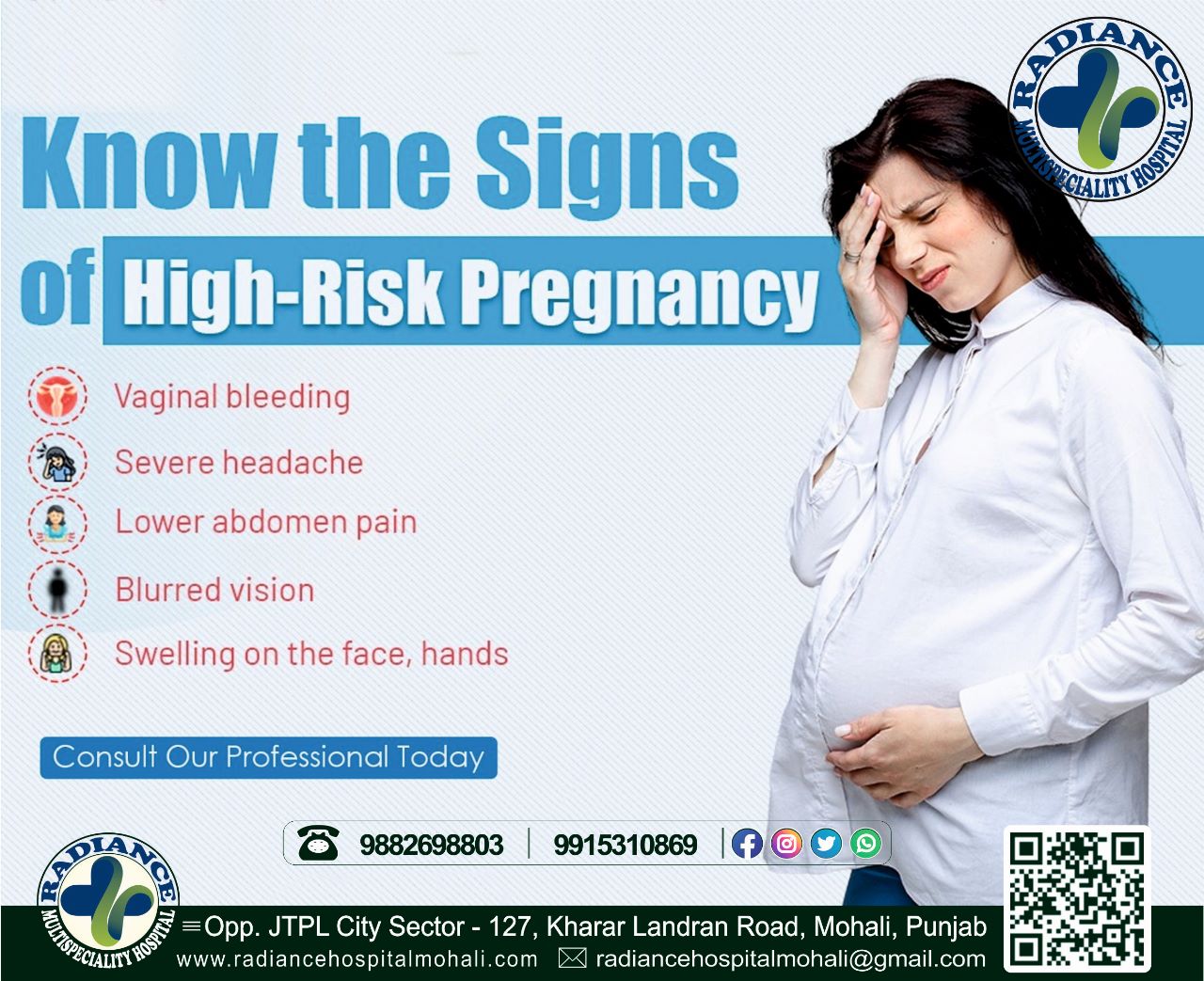Several factors can contribute to making a pregnancy high-risk. Some of the common factors include:
![]() Maternal Age: Pregnancy risks increase with extremes of maternal age.
Maternal Age: Pregnancy risks increase with extremes of maternal age.
![]() Existing Medical Conditions: Pre-existing health conditions like diabetes, high blood pressure or autoimmune disorders can complicate pregnancy.
Existing Medical Conditions: Pre-existing health conditions like diabetes, high blood pressure or autoimmune disorders can complicate pregnancy.
![]() Multiple Pregnancies: Carrying twins, triplets, or more (multiple gestations) can increase the risk of certain complications.
Multiple Pregnancies: Carrying twins, triplets, or more (multiple gestations) can increase the risk of certain complications.
![]() Previous Pregnancy Complications: A history of preterm birth, miscarriage, stillbirth, or other pregnancy complications can increase the risk of recurrence.
Previous Pregnancy Complications: A history of preterm birth, miscarriage, stillbirth, or other pregnancy complications can increase the risk of recurrence.
Some high-risk pregnancy complications
1. Gestational Diabetes ![]()
![]() : This condition occurs when a pregnant woman develops high blood sugar levels. It can increase the risk of complications for both the mother and the baby.
: This condition occurs when a pregnant woman develops high blood sugar levels. It can increase the risk of complications for both the mother and the baby.
2. Pre-eclampsia ![]()
![]() : Pre-eclampsia is a pregnancy complication characterized by high blood pressure and damage to organs, typically the liver and kidneys. It can lead to complications such as premature birth and low birth weight.
: Pre-eclampsia is a pregnancy complication characterized by high blood pressure and damage to organs, typically the liver and kidneys. It can lead to complications such as premature birth and low birth weight.
3. Placenta previa ![]()
![]() : Placenta previa occurs when the placenta partially or completely covers the cervix. It can cause bleeding during pregnancy and may require a cesarean section for delivery.
: Placenta previa occurs when the placenta partially or completely covers the cervix. It can cause bleeding during pregnancy and may require a cesarean section for delivery.
4. Preterm labor ![]()
![]() : Preterm labor refers to the onset of contractions and cervical changes before 37 weeks of pregnancy. It can result in premature birth, which may lead to various health challenges for the baby.
: Preterm labor refers to the onset of contractions and cervical changes before 37 weeks of pregnancy. It can result in premature birth, which may lead to various health challenges for the baby.
5. Multiple pregnancies (twins, triplets) ![]()
![]()
![]() : Carrying multiple babies increases the risk of complications such as premature birth, gestational diabetes, high blood pressure, and placental abnormalities.
: Carrying multiple babies increases the risk of complications such as premature birth, gestational diabetes, high blood pressure, and placental abnormalities.
6. Intrauterine Growth Restriction (IUGR) ![]()
![]() : IUGR occurs when a baby fails to grow at a normal rate inside the womb. It can be caused by various factors, including placental problems and maternal health issues.
: IUGR occurs when a baby fails to grow at a normal rate inside the womb. It can be caused by various factors, including placental problems and maternal health issues.
7. Rh incompatibility ![]()
![]() : Rh incompatibility arises when a mother has Rh-negative blood and the baby has Rh-positive blood. If not managed properly, it can lead to severe complications and health problems for the baby.
: Rh incompatibility arises when a mother has Rh-negative blood and the baby has Rh-positive blood. If not managed properly, it can lead to severe complications and health problems for the baby.
8. Advanced maternal age ![]()
![]() : Getting pregnant at an older age (typically over 35) increases the risk of certain complications, including gestational diabetes, high blood pressure, and chromosomal abnormalities.
: Getting pregnant at an older age (typically over 35) increases the risk of certain complications, including gestational diabetes, high blood pressure, and chromosomal abnormalities.
9. Placental abruption ![]()
![]() : Placental abruption occurs when the placenta separates from the uterine wall before delivery. It can result in heavy bleeding, premature birth, and fetal distress.
: Placental abruption occurs when the placenta separates from the uterine wall before delivery. It can result in heavy bleeding, premature birth, and fetal distress.
10. Infections ![]()
![]() : Certain infections during pregnancy, such as urinary tract infections and sexually transmitted infections, can pose risks to both the mother and the baby if left untreated
: Certain infections during pregnancy, such as urinary tract infections and sexually transmitted infections, can pose risks to both the mother and the baby if left untreated
For more information consult Dr. Rimmy Singla (Director Radiance Multispeciality hospital High-Risk Pregnancy Expert | Laparoscopic Surgeon I IVF Expert.
#PregnancyCareTips #MaternityCare #MothersCare #CompassionateCare #Infertility #PregnancyCare #Trimester #PCOSAwareness #PelvicPain #IrregularPeriods #Delivery #Birth #Motherhood #Positivebirth #Momlife #PCOS
